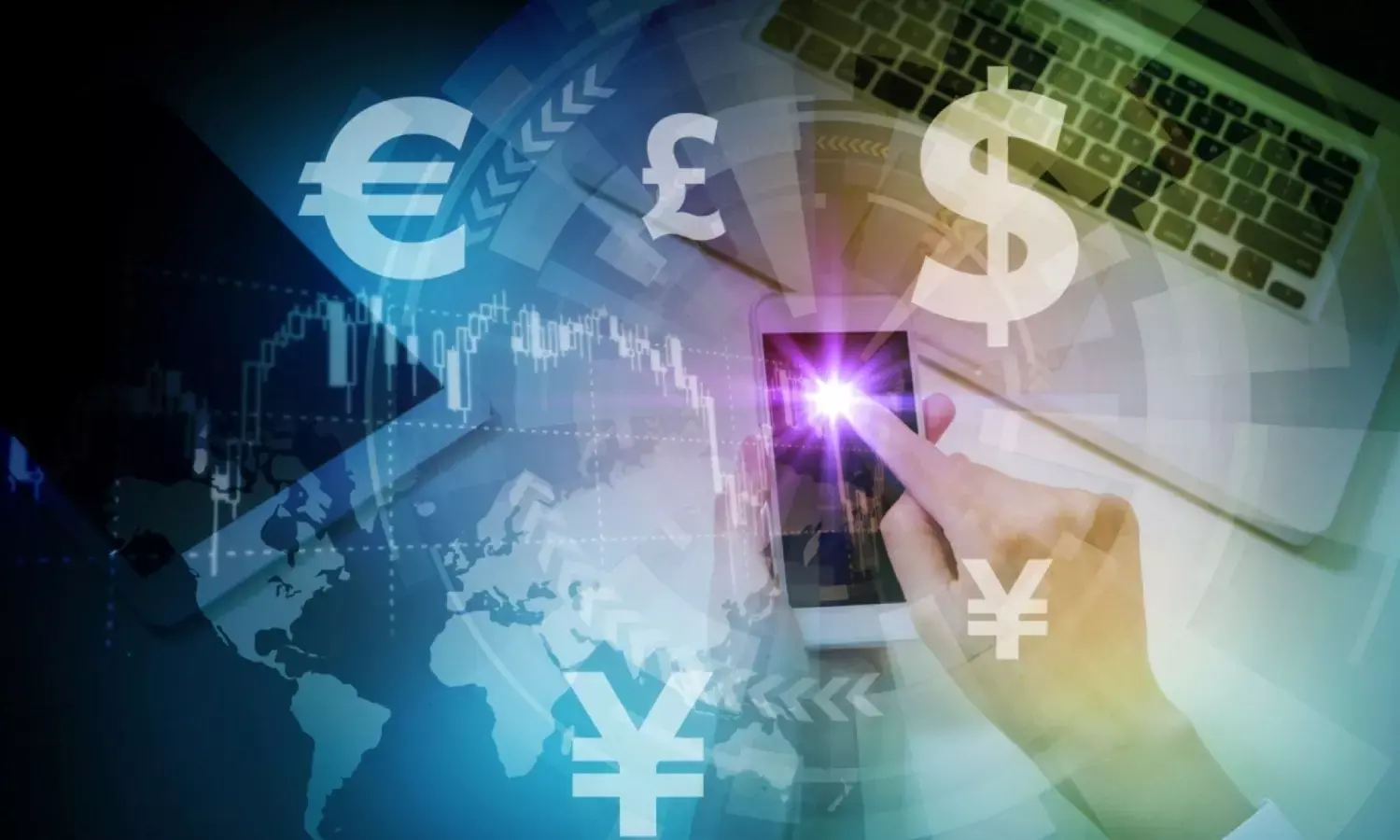Fintech Interplay of IP and IT

FINTECH INTERPLAY OF IP AND IT Rapid Development in Mobile and Telecommunications and Government Support and Incentives in Digital Payments, Have Led to Innovation and Growth of Fintech Products in India "Fintech" is a combination of the words finance and technology and is an integration of new and innovative technology into offerings of financial companies for developing, augmenting...
FINTECH INTERPLAY OF IP AND IT
Rapid Development in Mobile and Telecommunications and Government Support and Incentives in Digital Payments, Have Led to Innovation and Growth of Fintech Products in India
"Fintech" is a combination of the words finance and technology and is an integration of new and innovative technology into offerings of financial companies for developing, augmenting and automating the delivery and use of financial services. Fintech is utilized for managing financial operations, processes, software and algorithms that are used on computers and smartphones.
Fintech, originally termed as computer technology and which was hitherto used for the back-end systems of financial establishments, banks and trading firms, now provides more solution driven services to the consumer like chatbots and AI interfaces to assist customers with basic tasks, monitoring and reducing frauds and also keeping operational and staffing costs minimal. New technologies like machine learning / artificial intelligence, predictive behavioral analytics and data-driven marketing are also now applied for consumers to make better financial decisions rather than relying on speculation.
FINTECH ECOSYSTEM
Globally there is a wide array of fintech non-bank companies both in the B2B or B2C space that focuses primarily in the areas of lending, credits and payments, investments and trading, wealth management and compliances.
However, Fintech, apart from banking and financial institutions, has also expanded its horizons in other sectors and industries such as education, retail banking, fundraising, investment management, etc.
FINTECH SEGMENTS
Some of the most active areas of fintech innovation include or revolve around the following areas:
✔ Payments and Digital cash like cryptocurrency and bitcoins;
✔ Blockchain technology, including Ethereum, a distributed ledger technology (DLT) that maintains records on a network of computers, but has no central ledger;
✔ Smart contracts, which utilize computer programs (often using the blockchain) to automatically execute contracts between buyers and sellers;
✔ Insurtech, which seeks to use technology to simplify and streamline the insurance industry;
✔ Automated investments with use of digital platforms, making pre-programmed investing and trading decisions for customers based on algorithms and variables from the user such as age, income, goals, and risk tolerance.
✔ Regtech, which seeks to help financial service firms meet industry compliance rules, especially those covering Anti-Money Laundering and Know Your Customer protocols which fight fraud;
✔ Robo-advisors, utilize algorithms to automate investment advice to lower its cost and increase accessibility;
✔ Machine Learning;
✔ Cloud Computing; and
✔ Cybersecurity due to the proliferation of cybercrime and the decentralized storage of data, cybersecurity and fintech are entangled.
While financial services are amongst the most heavily regulated sectors in the world, the integration of technology into financial services and processes, have further multiplied and tightened the regulatory net leading to being one of the major roadblocks for fintech companies to take off.
TRENDS AND DEVELOPMENT IN INDIA
Rapid development in mobile and telecommunications and Government support and incentives in digital payments, have led to innovation and growth of Fintech products in India.
The Fintech products offered by financial companies in India are:
✔ United Payment Interface (UPI) Payments – It is a digital payment platform operated and managed by the National Payment Corporation of India (NPCI). It provides instant real time mobile bank to bank payments through mobile technologies and telecommunications. This is the most preferred mode of payment today.
✔ Pre-Paid Instruments (PPI) – They are pre-paid instruments used by banks and non-bank entities which facilitate purchase of goods and services. However, PPIs are regulated by guidelines issued by the Reserve bank of India (RBI).
✔ Payment Banks – They are licensed by RBI to provide basic banking services to their consumers digitally in order to encourage more digital payments and financial inclusion of low income segments.
✔ Payment aggregators and gateways – They both are intermediaries and regulated under guidelines of RBI. Payment aggregators facilitate purchase of goods and services on commerce platforms and they do not require a separate payment integration system. They collect the monies from customers and transfer them to the merchants after some time. Payment gateways provide online technology system for facilitating direct online payments without handling funds.
✔ Digital Lenders – These are generally non-banking financial companies (NBFCs) which provide credit products to their customers including disbursement of loans and execution of loan documents. These are done digitally through their interactive websites and applications.
✔ P2P lending platforms – They too are intermediaries under RBI guidelines as they offer loan facilitation services between the lenders and buyers registered on such platforms and the prospective borrowers in a regulated environment.
A recent Supreme Court Judgment K Puttaswamy & Ors vs Union of India and consequential legislative changes restricts private bodies from undertaking Adhar e-KYC authentication (e-KYC) offered by Unique Identification Authority of India (UIDAI) to verify its consumers identity. While this e-KYC would have been the most convenient and easy tool for fintech companies for onboarding and verifying its customers, the said Supreme Court judgement prohibited the access of e-KYC to fintech companies. Fintech companies in India subsequently developed innovative ways to leverage existing Aadhar ecosystem (without accessing Central KYC registry) to verify its customers identity using QR Code based technologies, XML files, etc.
With Fintech rapidly increasing in India especially in digital payments and lending space, there is constant regulatory resistance for cryptocurrency in India due to the associated money laundering risks it may have while virtual trading of such cryptocurrencies. Currently, banks and other RBI licensed entities cannot deal in cryptocurrencies in India as it is not recognized legal tender.
India attracted $2.7 billion in fintech investment in 2020, the second-highest amount ever after 2019's record
$3.5 billion, according to the Pulse of Fintech H2'20, a bi-annual report on global fintech investment trends published by KPMG.
IP RIGHTS IN FINTECH
Fintech thrusts on technology. With technology deeply entrenched into making available financial products and services to the end consumer, securing of Intellectual Property (IP) assets becomes a primary consideration for fintech companies to maximize their commercial value and develop a digital
transformation strategy. The fintech companies / institutions either develop technology in-house or acquire from third party vendors or through collaborations with vendors and competitors or acquiring businesses engaged in development of fintech. Irrespective of the foregoing, the registration of IP rights becomes very crucial for inventions and competitive technology in the fintech world for the following reasons:
(i) Ownership and protection of technology (including hardware and software)
(ii) IP Registration & Enforcement
(iii) Branding
(iv) Designs
(v) Trade Secrets
The size of the IP portfolio becomes attractive to investors and shareholders in fintech start-ups and companies and also propels their credit ratings both in local and global markets.
The IP assets of fintech businesses can be protected as follows:
a) Patents: Patent is for registration of any invention. In the fintech space, patent protection is available for innovations in basic technologies and there are lots of patents granted globally. Hence it is necessary to know the relevant technology that is patented because if the same is used or exploited without consent, then one would face the patent infringement proceedings. Patent disallows competitors to develop, create or use patented technologies or technologies similar to the one already patented. This gives a competitive edge to the owner of the technology and can be leveraged as a highly negotiative marketing tool.
E,g, Freecharge, a digital payments firm owned by Snapdeal, has applied for patents for its technological innovation. It has created an alternative to the OTP authentication solution based process named 'On The Go Pin' which aims to give OTP with a pin for all types of online and offline transactions and keeps changing every few seconds.
Patenting new technology not only to protect it against theft, but also because a patented technology, even with pending registration, becomes a highly valuable intangible asset for the fintech start-ups and companies during fund raising from the investors.
b) Copyright: Copyright automatically subsists in works such as computer code. Computer code cover details such as source code, pseudocode, machine code, and specially developed hardware or firmware. Copyright also protects the program's code, visual interface features, audio and video guides, application programming interface (API) and similar R&D solutions.
In fintech space, websites/applications/software is the backbone of most of start-ups including fintech start-ups and hence the same needs to be protected from competitors to use the creator's idea.
Copyright is an important instrument for protecting intellectual property for its computer program which particularly ensures high performance and efficacy. Fintech companies should ensure that their work does not include any third parties' copyrights in the form of source codes and other program features as it may have to face copyright infringement proceedings.
c) Trade marks: Branding matters the most in the fintech world for giving distinct recognition to its brand and positioning in the market and provide high quality customer services. A strong trade mark allows fintech companies to differentiate their product from their competitors' products. It also
allows fintech companies to merge or acquire or get acquired based on the proposed use of their trademark giving them economic value and commercial benefits.
E.g. Brands like PayPal and Mastercard"s PayPass.
Brands can be registered as trade marks at the development stage or even before launch but there could be challenges if similar brands are already in use, or the brand is descriptive. While trademark is territorial the reach of branding is global.
e) Designs: Some aspects of fintech may also be susceptible to protection by other forms of registered IP, such as registered designs such as electronic cards, transaction devices, computer interfaces and icons. It is a form of an intellectual property that protects visual features such as shape, configuration, pattern or ornament, lines or colors or any combination of these features, applied to a finished article giving aesthetic value. Registration of designs helps to promote the distinctiveness of the trade mark and complex products or services of fintech companies.
f) Trade secrets: It does not require formal registration like patents and trademarks. However, fintech companies must ensure that the secret information remains in confidence and is not divulged to its competitors. In order to ensure the same, fintech companies need to ensure that their confidentiality measures are in place.
CONCLUSION:
Protection of IP should be the foremost priority for all fintech companies, especially start-ups. With proper documentation, registration of IP and due diligence of IP rights, the IP assets of fintech companies can be protected from the very nascent stage thereby boosting the efficacy and performance of technology and programs of fintech companies and giving leverage to numerous economic benefits to the owners of such IP.
Disclaimer – The views expressed in this article are the personal views of the author and are purely informative in nature.




